UPSC Daily Current Affairs: 23 July 2024 | Current Affairs & Hindu Analysis: Daily, Weekly & Monthly PDF Download
GS2/Polity
Govt Servants and RSS Activities: What Rules Say
Source: Indian Express
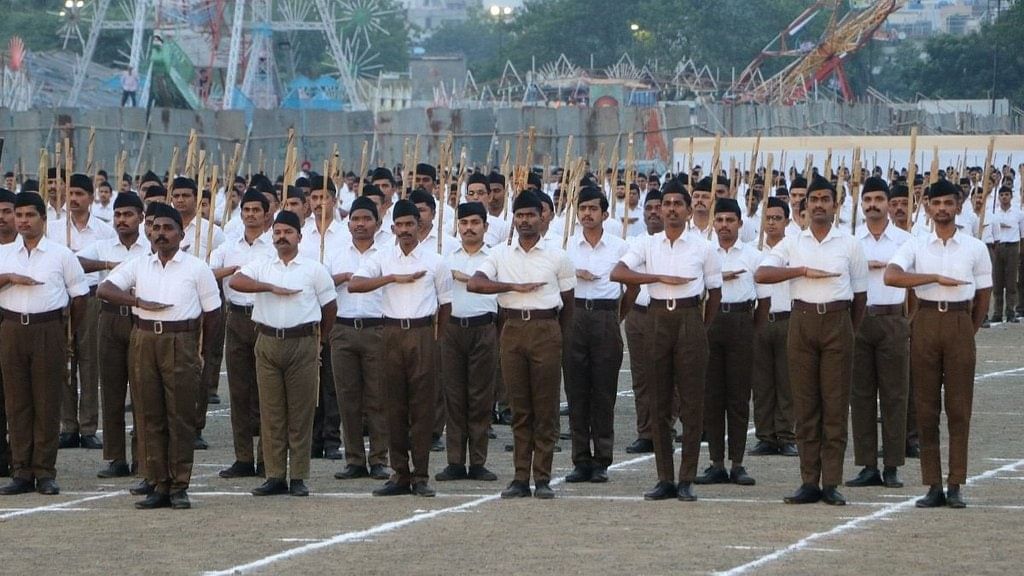 Why in News?
Why in News?
Following a directive from the Department of Personnel and Training (DoPT) earlier this month, employees can now engage in activities of the RSS without facing disciplinary action under the applicable conduct rules.
Removal of Restrictions on RSS Activities for Government Employees:
- The Centre has decided to remove the prohibition on government officials participating in activities of the Rashtriya Swayamsevak Sangh (RSS).
- This restriction has been in place for almost six decades.
- Following a directive issued by the Department of Personnel and Training (DoPT) earlier this month, employees can now engage in RSS activities without facing disciplinary action under the applicable conduct rules.
- The directive reviewed and removed mentions of the RSS from Official Memorandums dated November 30, 1966, July 25, 1970, and October 28, 1980.
Historical Context:
- 1966 Circular: Issued by the Ministry of Home Affairs, it prohibited government servants from participating in RSS and Jamaat-e-Islami activities, citing Rule 5 of the Central Civil Services (Conduct) Rules, 1964.
- 1970 Circular: Reiterated the 1966 directive and stressed disciplinary action against violators.
- 1980 Circular: Emphasized the need for secularism among government servants and reiterated previous orders against communal organizations.
Rule 5 of Conduct Rules:
- Prohibits government servants from associating with political parties or organizations involved in politics.
All India Services (Conduct) Rules, 1968:
- Similar to the 1964 Rules, applicable to IAS, IPS, and Indian Forest Service officers.
Prior:
- Before the 1964 and 1968 Rules, the Government Servants' Conduct Rules, 1949, prohibited political activities by government employees.
Violations and Consequences:
- Violations of Rule 5 could lead to disciplinary action, including dismissal.
- Determining political nature or association with the RSS was challenging due to its informal membership system.
Implications of the DoPT's Circular:
- The new directive implies that the RSS is not considered a political organization, allowing government employees to participate in its activities without violating conduct rules.
- However, the remains classified as a political organization.
Applicability to State Government Employees:
- Recent circular applies only to central government employees.
- State governments have their own conduct rules, and their stance on RSS participation varies.
Conclusion:
- The removal of the restriction on participating in RSS activities marks a significant change in the government's approach to its conduct rules, reflecting a shift in policy after several decades.
GS3/Economy
Economic Survey 2023-24 Highlights -I
Source: The Hindu
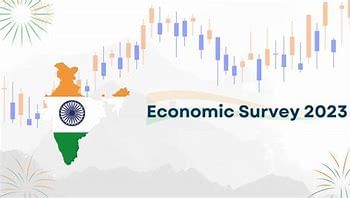
Why in news?
Economic Survey 2023-24 was presented in Parliament by Union Minister for Finance and Corporate Affairs, Smt. Nirmala Sitharaman.
About
- The Economic Survey of India is an annual report released by the Finance Ministry detailing the country's economic performance in the past year.
- It highlights macroeconomic figures, economic progress, challenges, and suggests measures for improvement.
- Prepared by the Economic Division of the Department of Economic Affairs under the Chief Economic Advisor of India.
Key highlights from Economic Survey 2023-24
- India's economy is projected to grow steadily with a real GDP growth of 6.5-7%, showing balanced risks.
- Gross value added (GVA) grew by 7.2% in FY24, with retail inflation decreasing from 6.7% to 5.4%.
- Current Account Deficit (CAD) improved to 0.7% of GDP in FY24.
- Government expenditures enhanced capital spending and ensured free food grains to millions.
Monetary Management and Financial Intermediation
- Credit disbursal by Scheduled Commercial Banks (SCBs) grew by 20.2% in FY24.
- Agriculture and allied activities saw double-digit credit growth.
- Primary capital markets facilitated capital formation.
- Financial inclusion is crucial for sustainable growth and poverty reduction.
Prices and Inflation Control
- Inflation was stable, aided by effective monetary policy management.
- Government actions like price cuts for LPG, petrol, and diesel helped control retail fuel inflation.
- Core services and goods inflation declined in FY24.
- Challenges in the agriculture sector impacted food prices, necessitating targeted interventions.
External Sector Stability
- India's external sector remained strong despite geopolitical challenges.
- Improvements in logistics performance and current account deficit were noted.
- India gained market share in global exports and remains a top remittance recipient.
- External debt to GDP ratio stood at 18.7% at the end of March 2024.
Medium-Term Outlook
- Key policy areas include job creation, agriculture sector development, MSME support, and green transition management.
- India's growth strategy focuses on boosting private investment, agriculture, and improving health quality.
GS3/Environment
India’s Changing Position on Climate Change
Source: The Tribune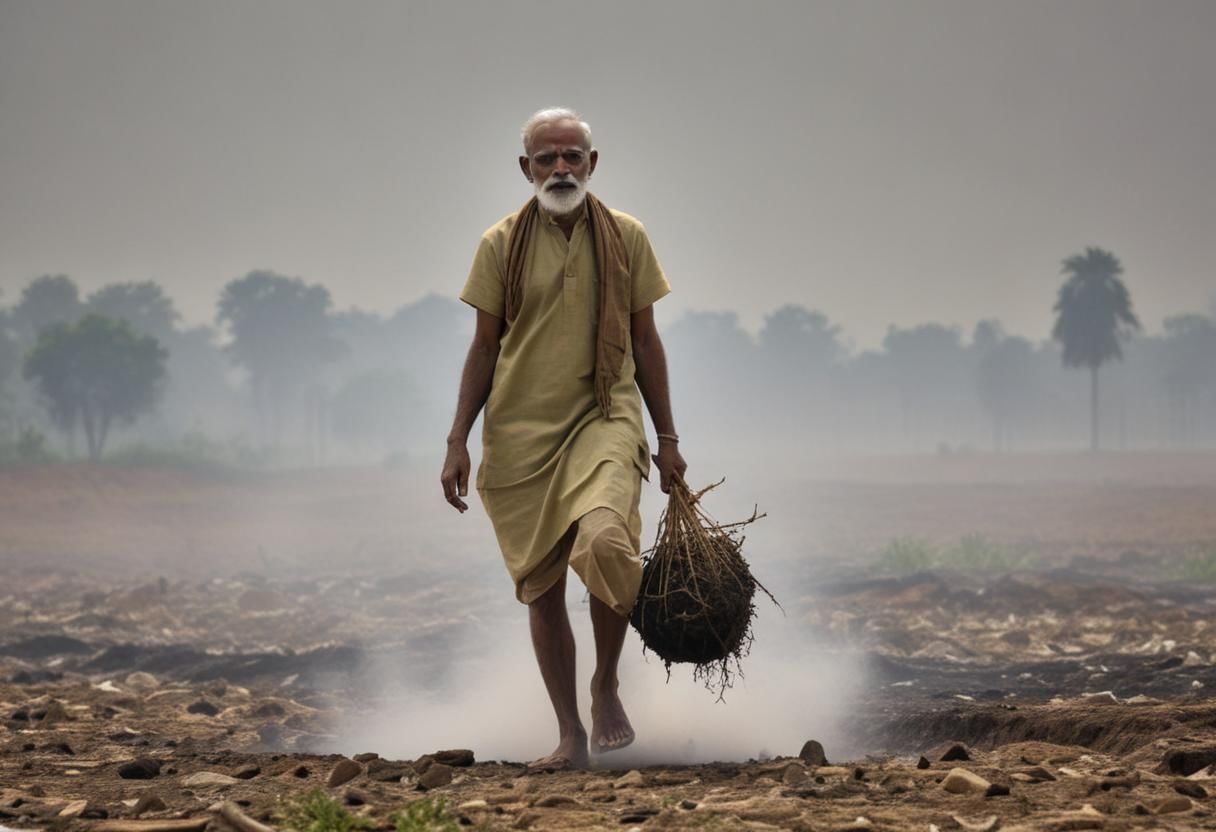
Why in News?
The government of India expressed a significantly altered stance on climate change in the Economic Survey 2023-24, presented in the Parliament. This shift occurred amidst growing indications that the world might miss the 1.5°C target.
What is the Global Temperature Target?
The Paris Agreement, dating back to 2015, emphasizes that nations should strive to limit the global average annual temperature rise to 2°C from pre-industrial levels, ideally aiming for 1.5°C.
Why is India Challenging Global Climate Change Discourse?
India has consistently criticized the unfairness in the global climate change framework and the lack of commitment from developed countries in their climate actions.
Suggestions in the Economic Survey for the Climate Problem
- A more sustainable strategy involves altering lifestyle choices and reducing waste rather than solely switching to alternative energy sources.
- A balanced approach suggests that implementing short-term policies to enhance quality of life is crucial for climate resilience.
What is the Carbon Border Adjustment Mechanism (CBAM)?
The CBAM, a measure by the EU, aims to levy tariffs on energy-intensive imports to prevent local producers from facing a competitive disadvantage against producers from nations with less strict emission standards.
Why India Criticises CBAM?
India opposes CBAM due to its contravention of the Paris Agreement principles and its potential adverse impact on Indian exports of iron, steel, and aluminium.
Inequity of the Global Climate Change Architecture
India has consistently raised concerns about the unfairness in the global climate change architecture and the lack of effort from developed nations.
Alternate Energy Solutions and Challenges
Transitioning to alternative energy sources presents its own challenges, such as the adverse environmental impact of mining critical minerals in underdeveloped regions.
Implications of CBAM on India
CBAM's implementation could strain India's financial resources for climate adaptation, impacting its exports and climate change mitigation strategies.
GS3/Economy
Economic Survey 2023-24 Highlight – II
Source: The Hindu
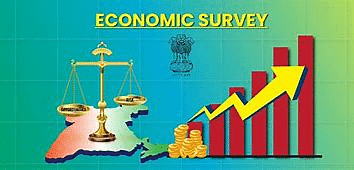
Why in news?
Union Finance Minister Nirmala Sitharaman has presented the Economic Survey 2023-24, forecasting a real GDP growth ranging from 6.5 to 7 per cent.
Key highlights of Economic Survey 2023-24
Climate Change and Energy Transition: Dealing with Trade-Offs
- A report by the International Finance Corporation acknowledges India's efforts towards achieving committed climate actions, noting it as the sole G20 nation aligned with a 2-degree centigrade warming goal.
- India has shown significant progress in climate action through increased renewable energy capacity, enhanced energy efficiency, and a notable share of non-fossil sources in electricity generation.
- India has reduced the emission intensity of its GDP by 33% from 2005 levels to 2019, while maintaining GDP growth and managing emissions effectively.
- The Government's initiatives like the Coal Gasification Mission have led to substantial energy savings, cost reductions, and emissions reductions.
Social Sector - Benefits that Empower
- Digitalization in healthcare, education, and governance has amplified the impact of welfare programs.
- Noteworthy declines in the Gini coefficient indicate reduced inequality in both rural and urban sectors, showcasing positive trends in social welfare.
- Key initiatives like Ayushman Bharat and Poshan Bhi Padhai Bhi are enhancing healthcare and education access for millions across the country.
- India's advancements in research and development, housing schemes, and road construction are positively impacting social development and economic growth.
Employment and Skill Development: Towards Quality
- Improvements in labor market indicators, increasing female labor force participation, and the evolving gig workforce reflect positive trends in job creation and skill development.
- Strategies to boost employment in non-farm sectors and address future workforce needs are crucial for sustaining economic growth and social stability.
- Investments in public infrastructure and job creation programs hold the potential to drive inclusive growth and gender equality in the workforce.
Agriculture and Food Management – Plenty of Upside Left If We Get It Right
- Consistent growth in the agriculture sector, coupled with credit disbursement and irrigation advancements, signifies opportunities for sustainable agricultural practices and food security.
- Investments in agricultural research and industry support are vital for enhancing productivity and ensuring food sufficiency.
Industry - Small and Medium Matters
- Industrial growth rates, achievements in the pharmaceutical, clothing, and electronics manufacturing sectors, and the success of incentive schemes underscore the importance of small and medium enterprises in driving economic growth.
- India's prowess in various industries and its attractiveness for investments highlight the potential for job creation and economic diversification.
Services - Fuelling Growth Opportunities
- Recovery in the services sector post-pandemic, growth in service exports, advancements in aviation and tourism, and the rise of digital services signify opportunities for economic expansion and global competitiveness.
- Enhancements in telecommunication infrastructure, internet penetration, and digital connectivity are pivotal for enabling service sector growth and enhancing economic inclusivity.
Infrastructure – Lifting Potential Growth
- Infrastructure developments in transportation, railways, airports, and clean energy sectors are pivotal for enhancing economic productivity and facilitating sustainable growth.
- Progress in infrastructure projects and logistics performance indices underscore India's commitment to fostering a conducive environment for business and economic development.
GS-II/International Relations
International Mathematical Olympiad
Source: Indian Express
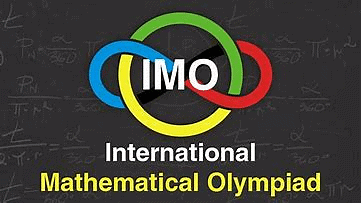
Why in News?
Recently, six-member student teams from India have secured the country its best performance ever in the International Mathematical Olympiad (IMO) 2024.
About International Mathematical Olympiad:
- It's a math competition for high school students called the World Championship Mathematics Competition, held every year in a different country.
- The first IMO took place in 1959 in Romania, with 7 nations participating.
- Over time, it has grown to include 100 countries across 5 continents.
- The IMO Board ensures the event runs annually, with host countries following the rules and traditions.
- The IMO operates independently but is connected to UNESCO. Its Council, known as the IMO Advisory Board, is elected by participating nations.
- The IMO foundation, a charitable entity, accepts donations to support the competition.
- This year marked the 65th IMO in Bath, United Kingdom.
- India's Achievements:
- India achieved its best performance in IMO history since joining in 1989, securing four Gold medals, one silver medal, and an honorable mention, ranking fourth globally.
- India's previous highest ranks were 7th in IMO 1998 and IMO 2001.
GS-II/Polity and Governance
DIGIPIN
Source: PIB

Why in News?
The Department of Posts has issued a beta version of National Addressing Grid under the brand name of DIGIPIN, which can be used for creating and sensing geo-location of addresses, for public feedback.
About DIGIPIN:
- It is an initiative to establish a standardized, geo-coded addressing system in India, for ensuring simplified addressing solutions for citizen-centric delivery of public and private services.
- In this regard, the Department had collaborated with IIT Hyderabad for developing this National Addressing Grid.
- This system will act as a strong and robust pillar of Geospatial Governance, leading to enhancements in public service delivery, faster emergency response and a significant boost to logistics efficiency.
- The DIGIPIN layer will act as the addressing reference system which can be used for logically locating addresses with directional properties built into it due to the logical naming pattern followed in its construction.
- It is proposed to be fully available in the public domain and can be easily accessed by everyone. The DIGIPIN Grid system being an addressing referencing system, can be used as the base layer for other ecosystems, including various service providers and utilities, where addressing is one of the processes in the workflow.
- The advent of DIGIPIN will mark a revolutionary step in India's journey towards digital transformation by bridging the crucial gap between physical locations and their digital representation.
- The Department has released a beta version of National Addressing Grid 'DIGIPIN' for public feedback.
GS-I/History and Culture
Kalaripayattu
Source: PIB

Why in News?
The Union Minister for Youth Affairs and Sports stated in the Lok Sabha that the Ministry has recognised the Indian Kalaripayattu Federation as the Regional Sports Federation to promote ‘Kalaripayattu’ in the country.
About Kalaripayattu:
- It is a traditional martial art that originated and is widely practiced in Kerala.
- According to legend, the warrior sage Parasurama is credited with the creation of Kalaripayattu.
- Kalaripayattu is a combination of two Malayalam words: 'kalari' meaning "place of combat" and 'payattu' meaning "fighting."
- The four stages of Payattu are:
- Maippayattu: Body conditioning exercises
- Kolthari: Use of wooden weapons
- Angathari: Use of sharp metallic weapons
- Verumkai: Bare-handed defense and attack
- Women also receive training in Kalaripayattu, both historically and in contemporary times.
- The primary ethnic styles of Kalaripayattu are found in three regions of northern Kerala (Malabar): Vattenthirippu Style, Arappukkai Style, and Pillathangi Style.
- This martial art is highly regarded for imparting incredible strength, stamina, defense techniques, reflexes, flexibility, confidence, concentration, physical conditioning, and mental discipline to practitioners.
- Kalaripayattu can be likened to Yoga in action and is the only martial art associated with a therapeutic branch that can be integrated into sports medicine.
GS-III/Eonomy
International Organisation of Securities Commission
Source: Hindu Business Line
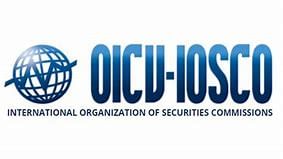
Why in News?
The International Organisation of Securities Commissions (IOSCO) is now engaged in strengthening the reporting structure of Sustainability and Environment, Social and Governance (ESG).
About International Organisation of Securities Commission:
- It was founded in 1983.
- It is the global organization that brings together regulators for securities worldwide and is known as the main group for setting rules for financial markets.
- Objectives:
- Improve protection for investors
- Make sure markets are just and effective
- Support financial stability by lessening big risks
- Both the G20 and the Financial Stability Board (FSB) support its goals and Principles of Securities Regulation.
- It acts as a standard-setting group with over 200 members, representing 95% of the world's securities regulators.
- There are three types of members:
- Ordinary members: These consist of the primary regulators for futures markets and securities in a specific area. Each ordinary member gets one vote.
- Associate members: They include extra regulators for futures and securities in areas with multiple regulatory bodies. Associate members cannot vote and are not part of the Executive Committee but are part of the Presidents' Committee.
- Affiliate members: These involve self-regulating organizations, stock exchanges, and industry associations for stock markets. Affiliate members cannot vote and are not part of the Executive Committee or the President's Committee but may be part of the Self-Regulatory Organizations (SRO) Consultative Committee.
|
38 videos|5269 docs|1114 tests
|
















